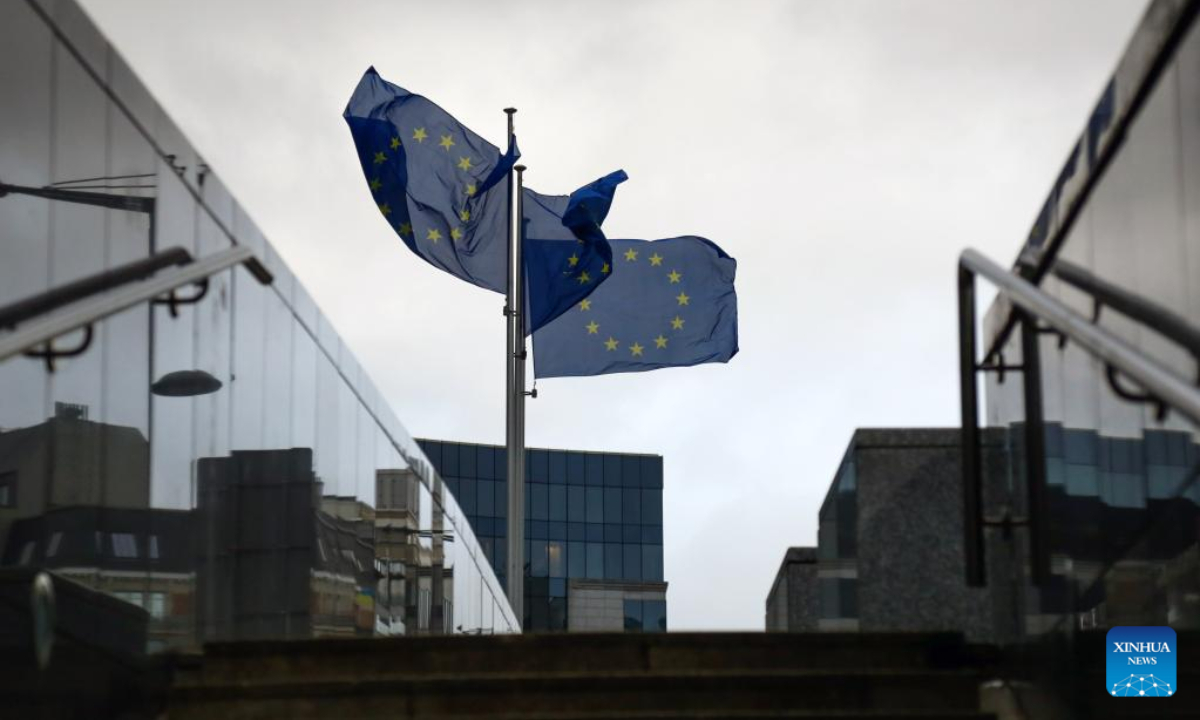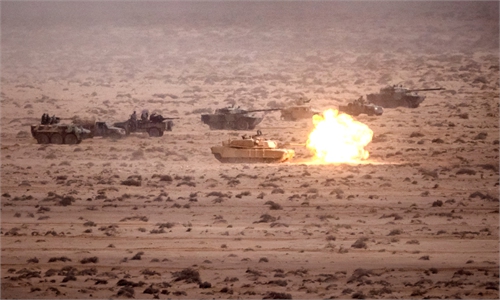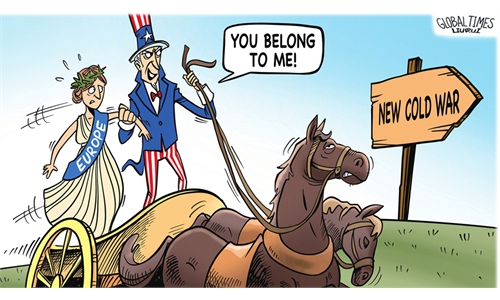
EU flags are seen outside the European Commission in Brussels, Belgium, Jan 6, 2023. Photo:Xinhua
Splits within Europe, especially between the old one and the new one, over support for Ukraine are still evident, despite the development that the US and Germany announced they will supply offensive tank vehicles to aid Kiev's fight, and that more allies on the continent are expected to follow suit, according to Chinese analysts on Friday.
Chinese analysts view German Chancellor Olaf Scholz's Wednesday pledge to provide Leopard 2 tanks as part of his effort to strengthen German military support for Ukraine as "mere compromise," and they think it resulted from the mixed political correctness pressures from both Berlin's domestic coalition government and moral kidnapping from US and European allies.
"The differences within Europe are quite stark. The old European countries such as Germany and France have been and still are reluctant to worsen the situation, as the quagmire of the Russia-Ukraine conflict serves no interests but is to the adverse of European interests," Cui Heng, an assistant research fellow from the Center for Russian Studies of East China Normal University, told the Global Times on Friday.
US President Joe Biden announced on Wednesday that his administration will provide Ukraine with 31 US-made M1 Abrams tanks, which Russia has said it would target if they were to be used in the ongoing conflict between Moscow and Kiev.
At a press briefing in Moscow on Wednesday, Kremlin spokesperson Dmitry Peskov blamed Western countries for sending tanks to Ukraine, saying that there are no prospects for the resumption of Russia-Ukraine peace talks. Peskov noted that if Abrams tanks are delivered to Ukraine, they "will burn like all other tanks," but as they are expensive, the European taxpayers will bear the financial burden while "Americans, as always, will remain at least with their own, and most likely - with good profits."
The old and new Europe are born different in their ways of handling the US, Cui noted. He explained that traditional European Union (EU) member states and the old NATO countries uphold the view of a multipolar world and believe the EU should be one of the global poles, so they will stress maintaining their strategic autonomy.
However, the new Europe, consisting of Central and Eastern European countries which were dragged into the US camp after the end of the Cold War and serve the US' strategy to contain Russia, however, stress keeping up with the US closely, he said.
The European Union needs strong leaders, akin to former German chancellor Angela Merkel, to have its voice heard on the global stage, Italian Foreign Minister Antonio Tajani told La Stampa newspaper on Wednesday.
"There are too many jealousies, too many leaders," Tajani said, arguing that the bloc has ended up serving the US instead of pursuing its own interests, and that "even Germany, the strongest [member] country, fails to impose itself. A Merkel is missing."




